The 4th ICPCN International Conference on Children’s Palliative Care brought together healthcare professionals, advocates, and organizations from around the world in Manila, Philippines, from 12-15 November 2025. After several years since their 3rd conference in 2018, I was privileged to witness firsthand how this year’s theme—”Milestones & Horizons”—truly came to life throughout the event.
A Memorable Opening
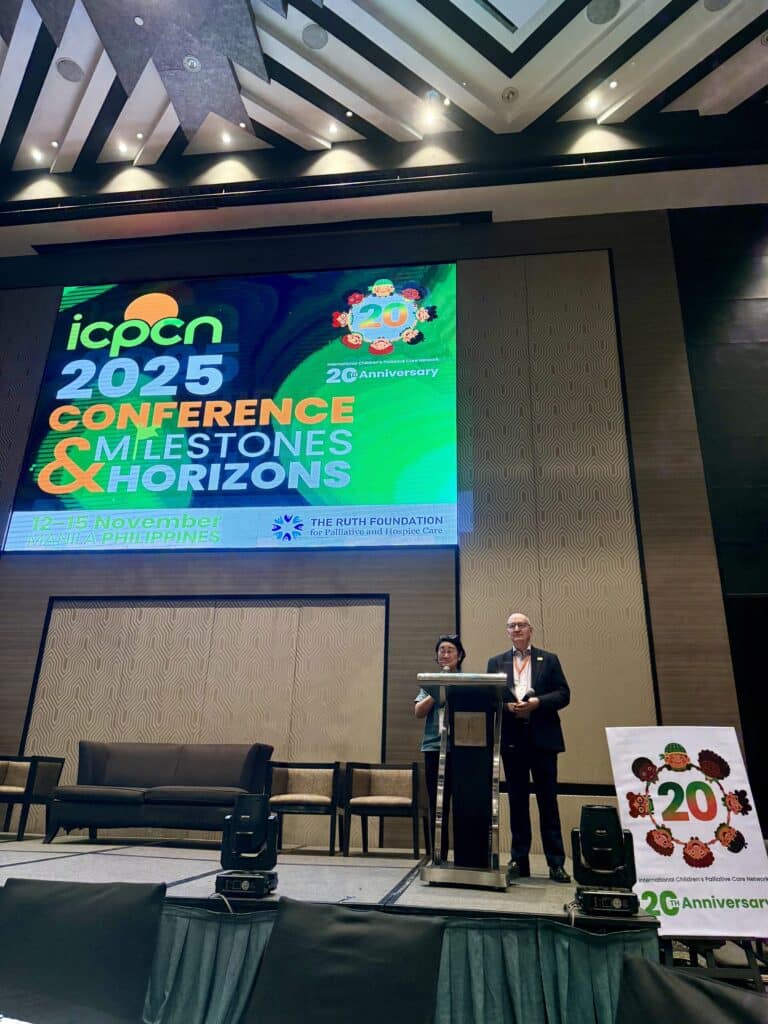
The conference opened under the expert leadership of Mike Palfreman, Chair of International Children’s Palliative Care Network (ICPCN), and Dr Rumalie Corvera, President of The Ruth Foundation (TRF). What struck me immediately was the seamless blend of professionalism and warmth that would characterise the entire event.
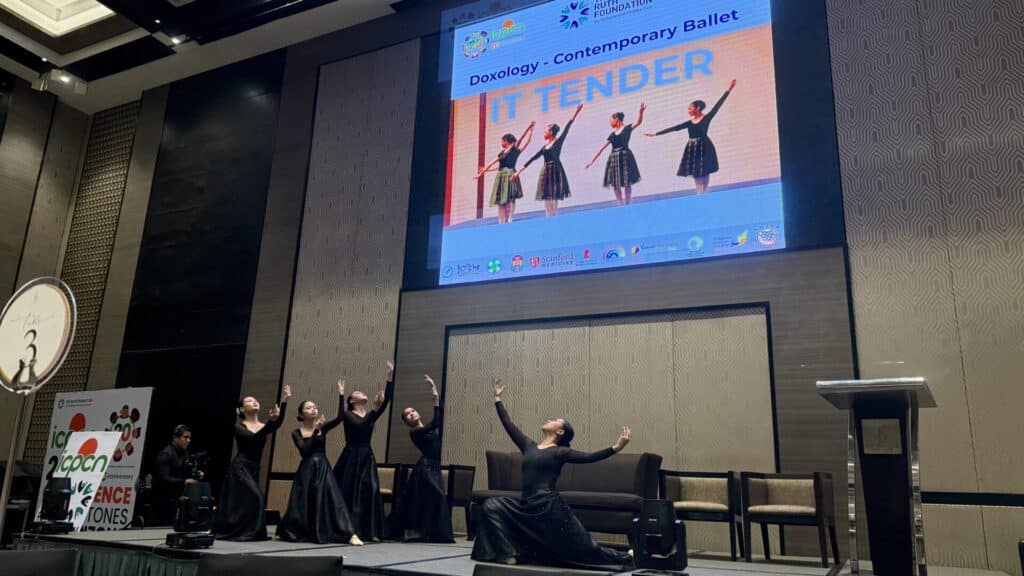
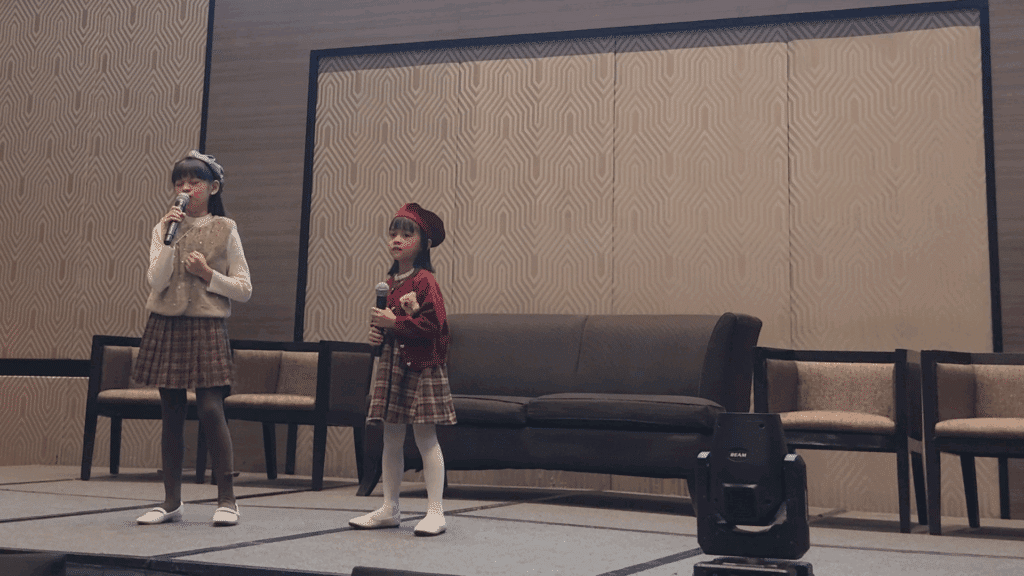
The opening ceremonies were nothing short of spectacular. A contemporary ballet performance by IT Tender set an emotional tone, reminding us of the grace and beauty that can exist even in the most challenging circumstances. Then came a truly unforgettable moment: sisters Kara and Georgie Lopez, aged just 10 and 7, captivated the entire audience with their rendition of “Himala” (Miracle). Their performance was a poignant reminder of why we do this work—for the children.
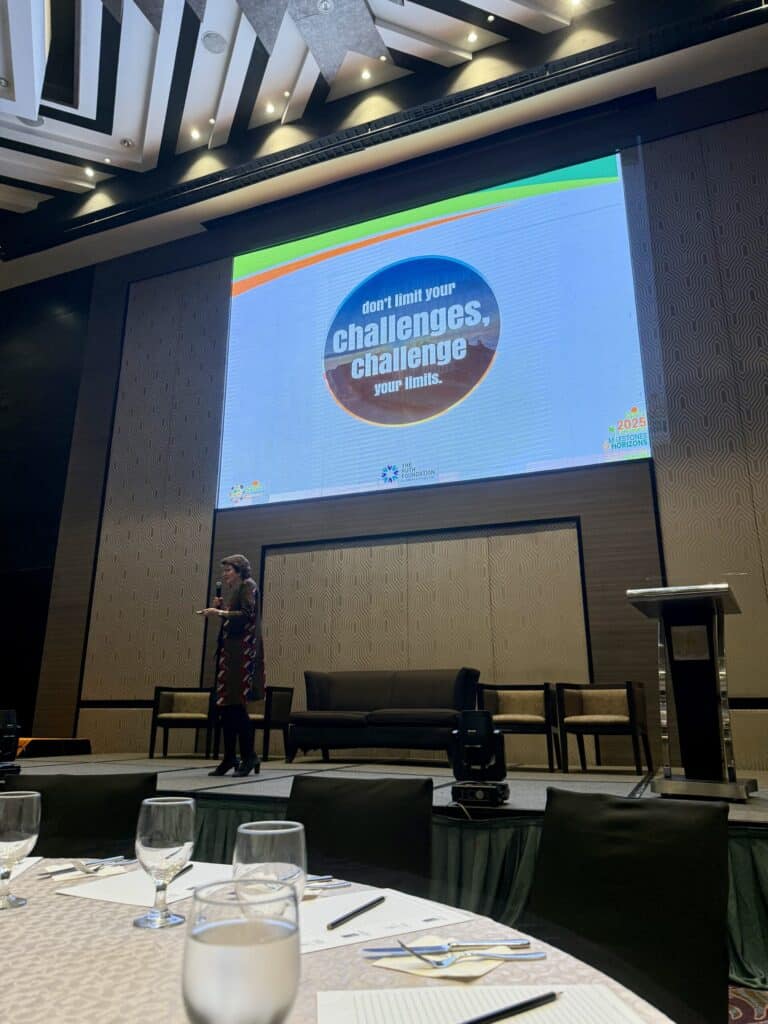
Prof Julia Downing, Chief Executive of ICPCN, delivered the opening plenary on “Milestones and Horizons: The Evolution of Children’s Palliative Care.” Her words resonated deeply: “Don’t limit your challenges, challenge your limits.” This call to action would echo throughout the conference, encouraging us all to push boundaries and think bigger about what’s possible in children’s palliative care.
Cultural Celebration and Community
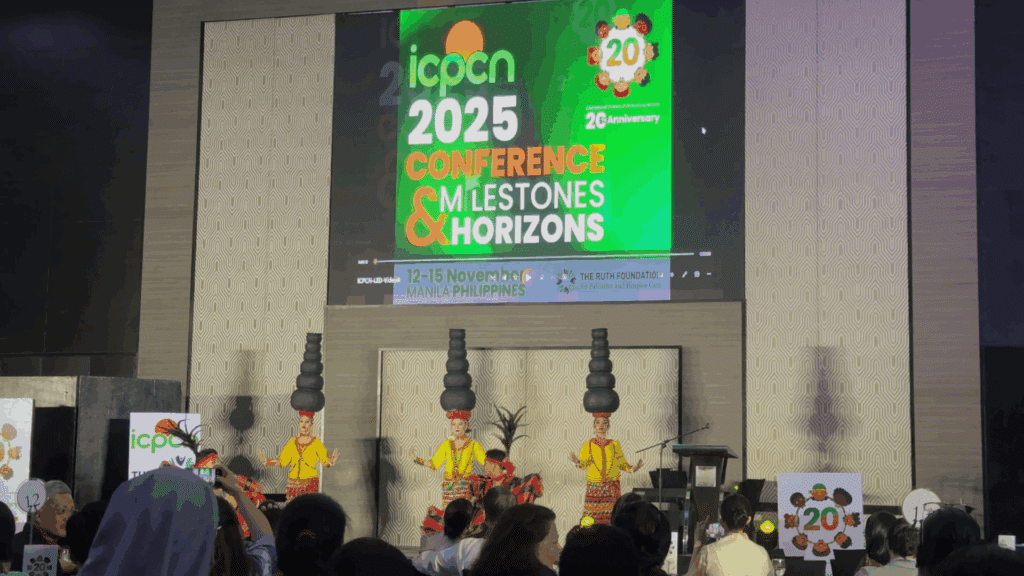
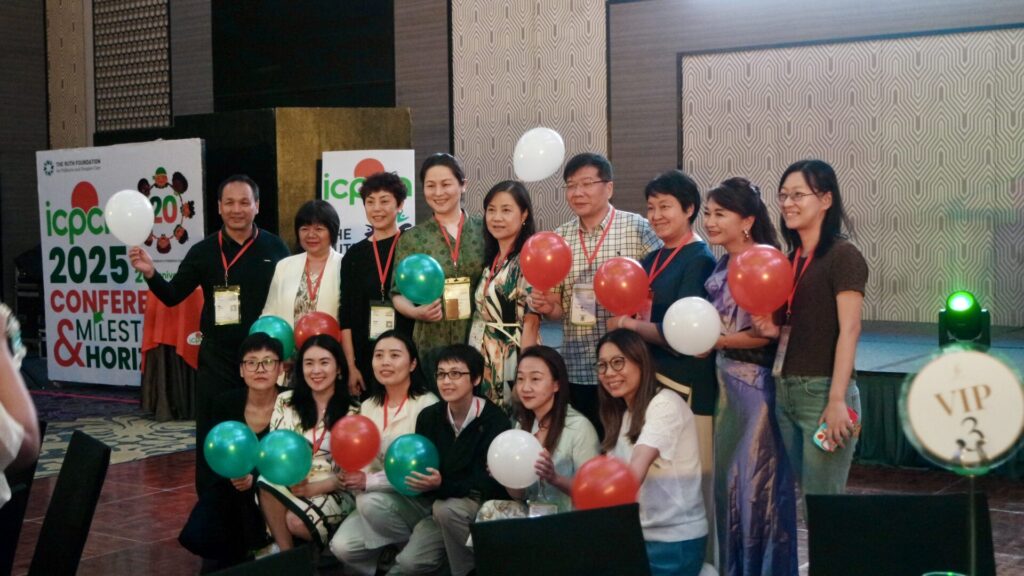
The first evening’s gala dinner was a celebration of Filipino culture that none of us will soon forget. We were treated to traditional Filipino dances including the Banga Salidsid and the remarkable Sayaw sa Bangko—a “dance on a bench” that had us all holding our breath with its daring choreography. The evening also marked a significant milestone: the 20th anniversary of ICPCN, a testament to two decades of dedication to improving care for children with life-limiting conditions worldwide.
Knowledge Sharing and Global Perspectives
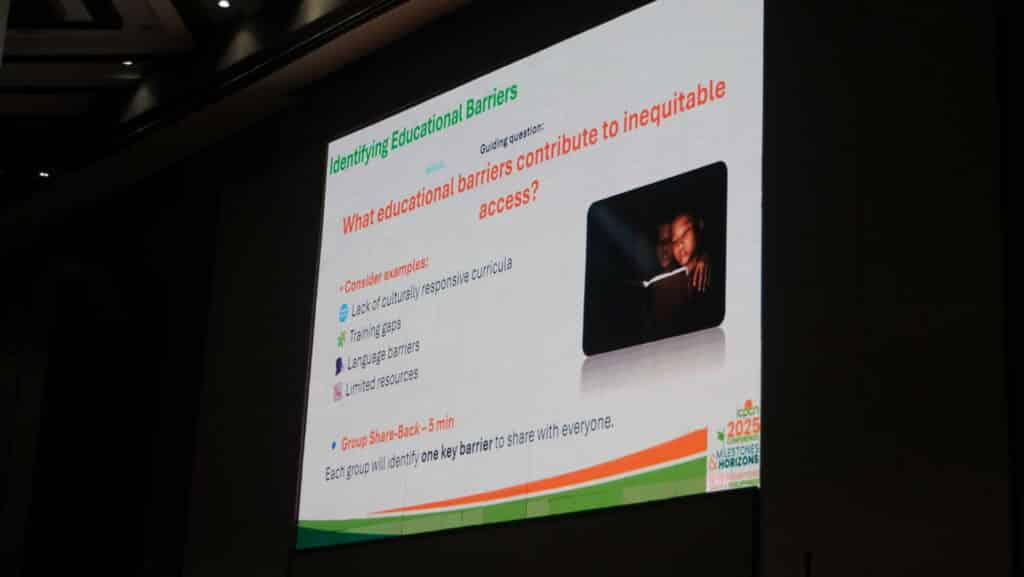
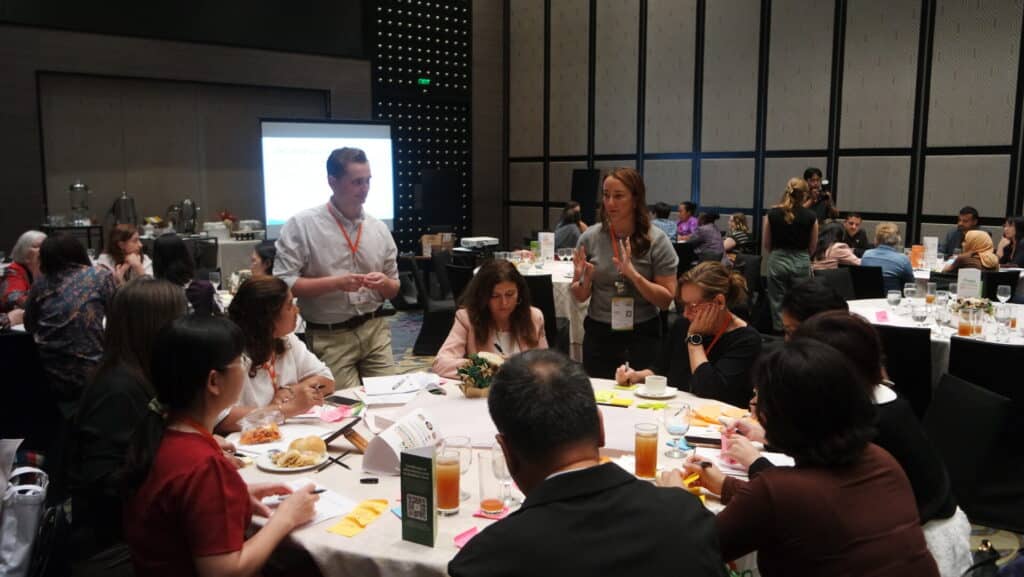
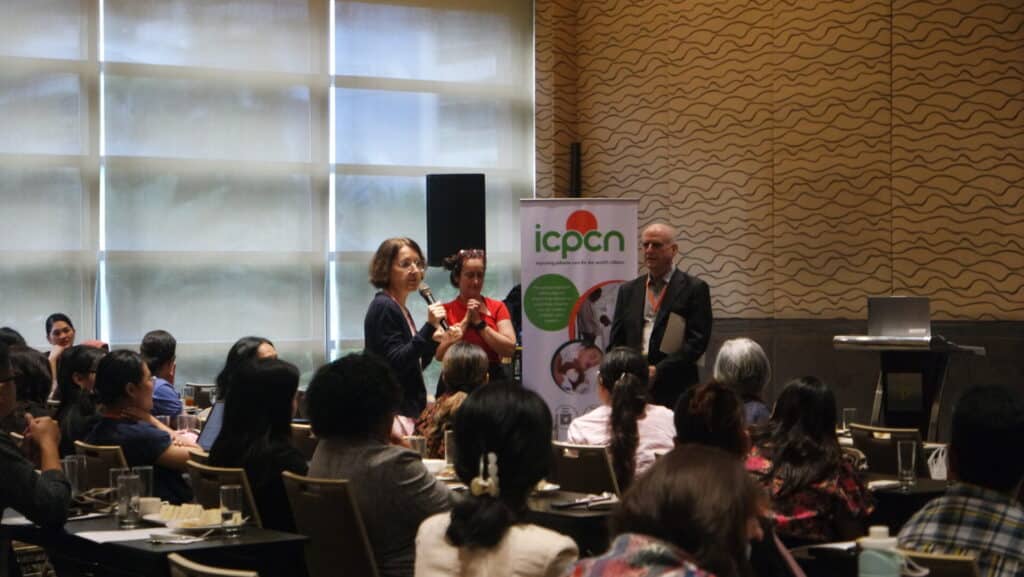
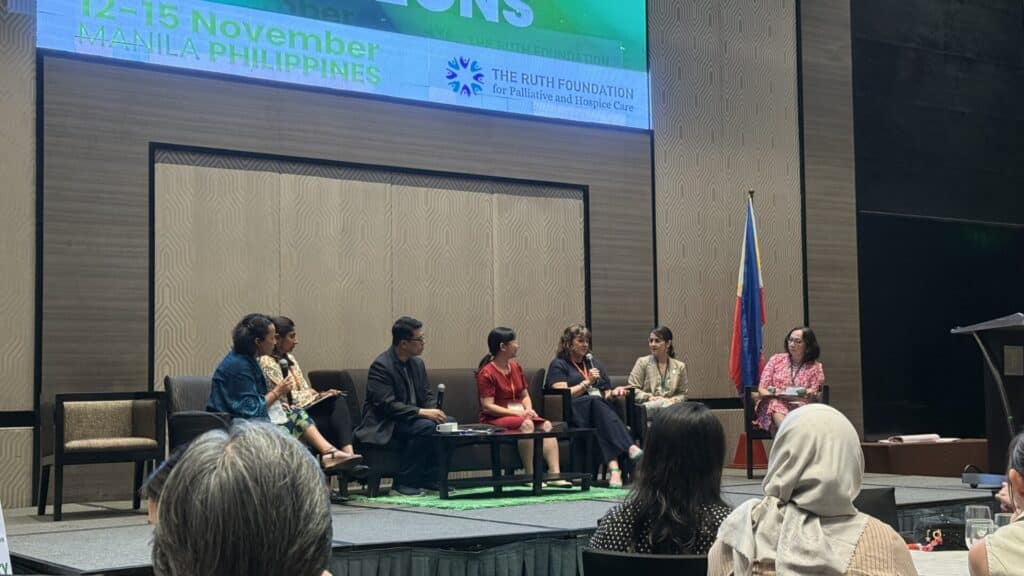
Day 2 featured a rich program with renowned international speakers who shared cutting-edge research, innovative care models, and inspiring stories from the field.
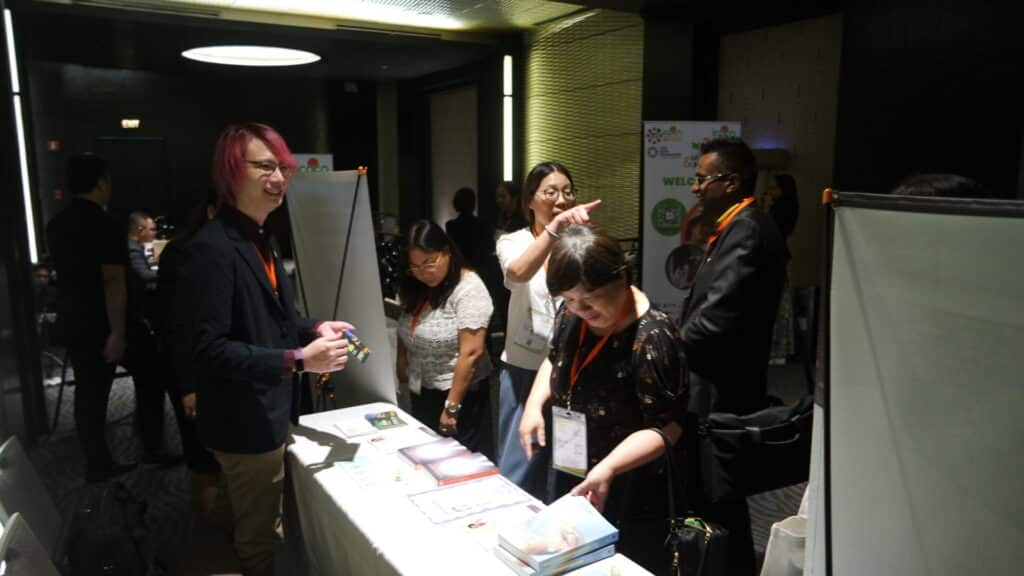
At our booth, I had the opportunity to connect with delegates between sessions, and the energy and passion in those conversations were palpable. People weren’t just attending presentations—they were actively engaging, questioning, and seeking ways to apply new knowledge in their own contexts.
The Power of Presence and Collaboration
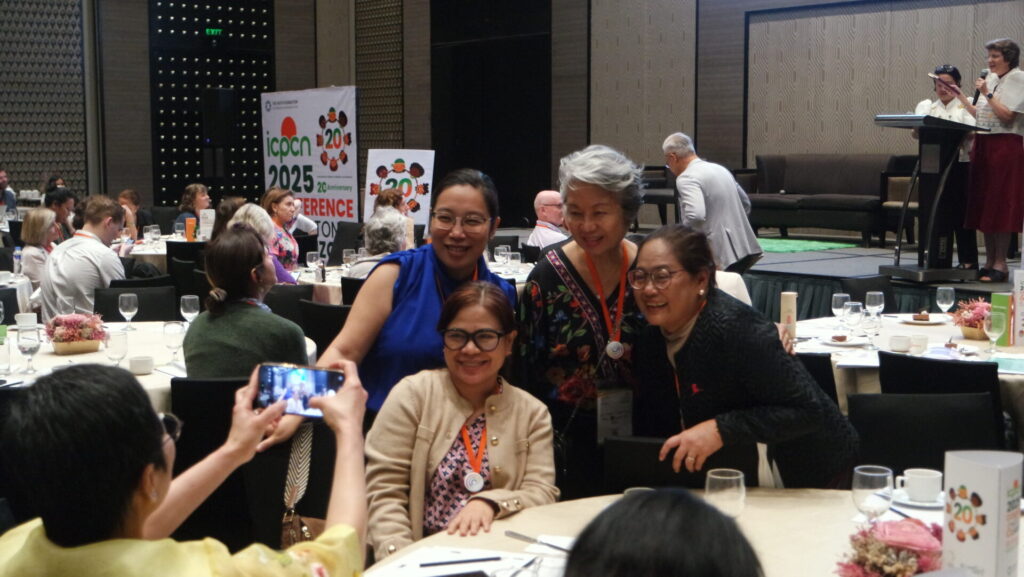
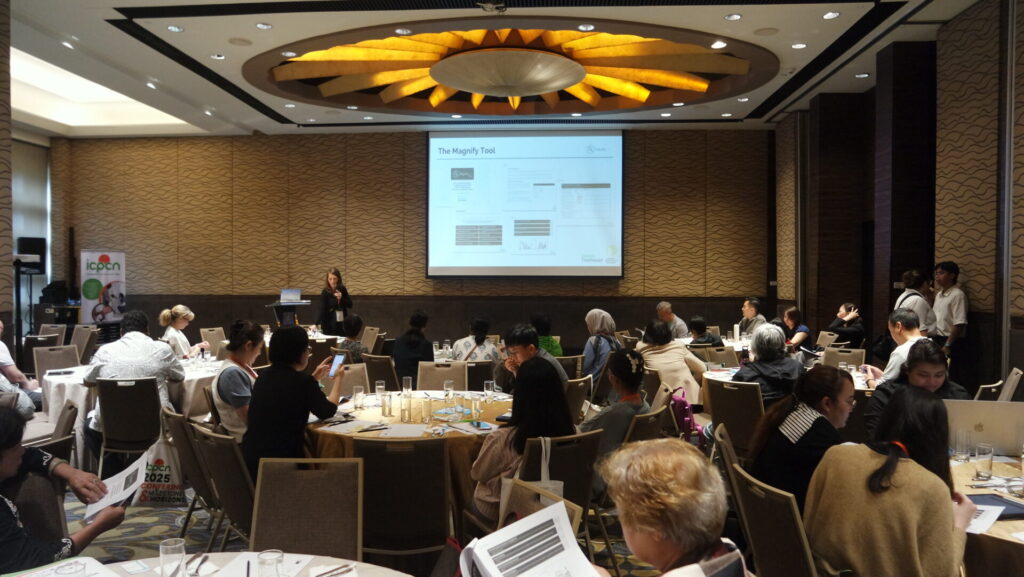
By the third day, several key themes had crystallised for me. First was the power of presence—simply being there, showing up for children and families in their most difficult moments. Second was the remarkable strength found in collaboration. This wasn’t just rhetoric; you could feel it in every conversation, every shared insight, and every new connection made.
One of the most valuable takeaways was learning from global colleagues about the importance of weaving culture and spiritual wellbeing into family-centered care. Our Filipino hosts demonstrated this beautifully throughout the conference, with music integrated into presentations, celebrations, and expressions of gratitude in ways that enriched the entire experience.
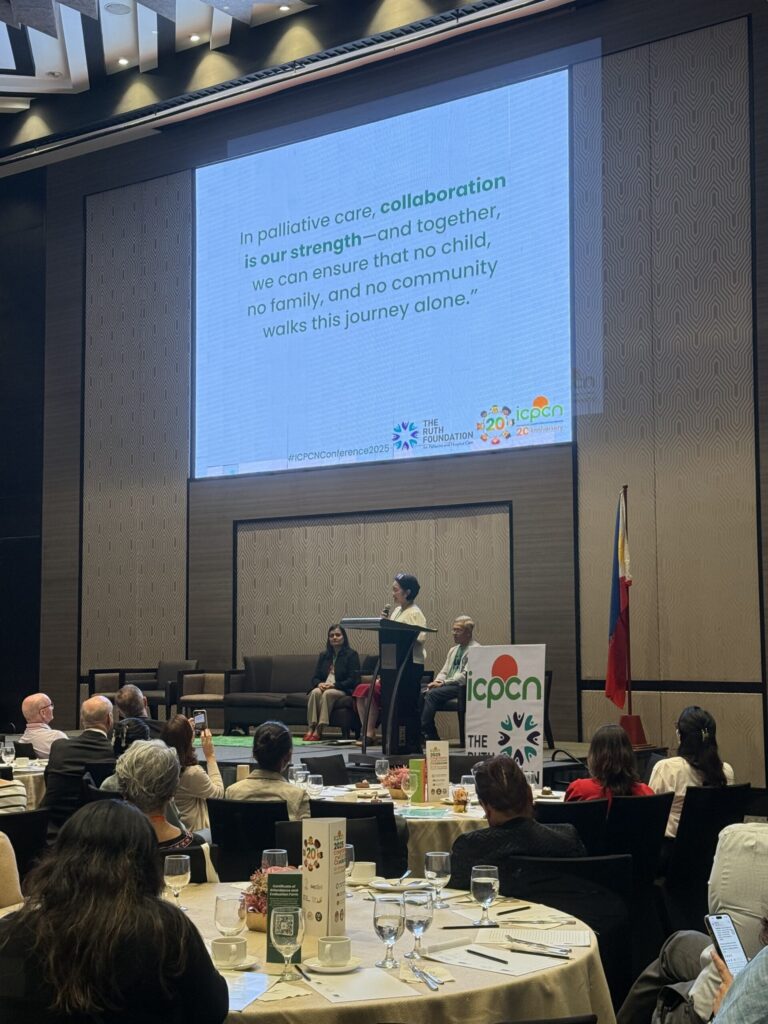
Dr Corvera’s closing words perfectly encapsulated the spirit of the gathering: “In palliative care, collaboration is our strength—and together, we can ensure that no child, no family, and no community walks this journey alone.”
A Call to Action
Looking around the conference venue, I was inspired to see a room full of people who put children and families at the forefront of their work every single day. This is a community united by compassion, driven by purpose, and committed to ensuring that every child receives the dignified, comprehensive care they deserve.
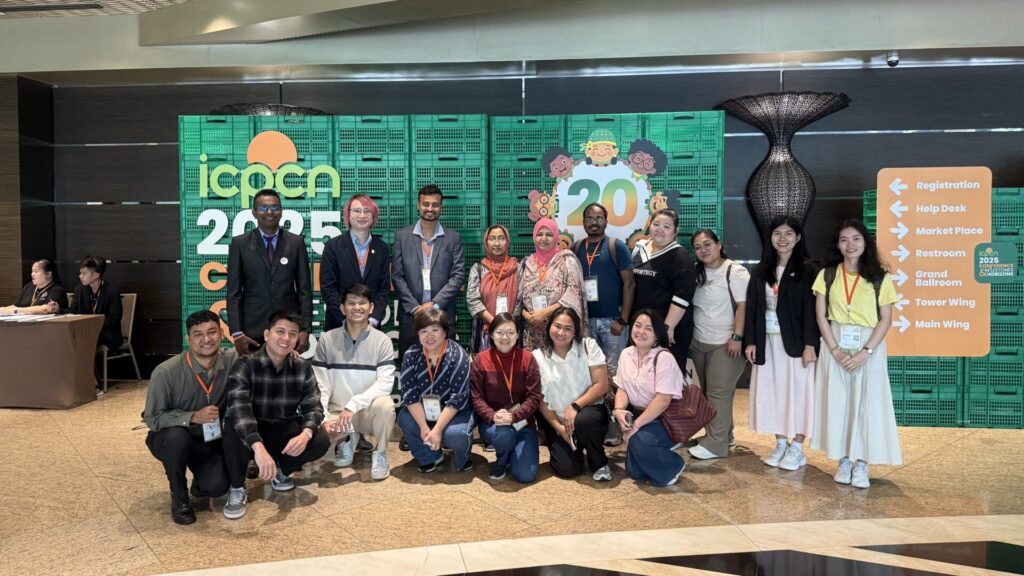
One of the highlights of our participation at the ICPCN Conference 2025 was the opportunity to support the next generation of children’s palliative care professionals. Through the Lien Collaborative Bursary Award, we sponsored 26 applicants from various professions across 11 regions to attend the conference. Seeing these bursary recipients engage with international experts, absorb new knowledge, and build networks that will sustain them throughout their careers was incredibly rewarding. This investment reflects our commitment to strengthening children’s palliative care capacity across the Asia Pacific region and beyond.
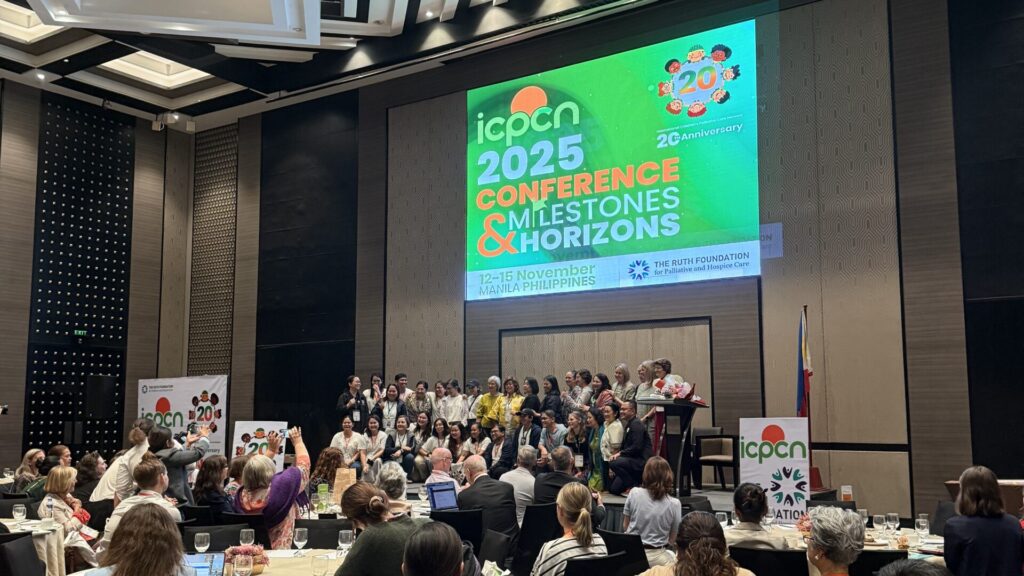
My congratulations go to the ICPCN and TRF teams for organising such a successful and meaningful conference. The connections made, knowledge shared, and inspiration generated in Manila will ripple outward, touching the lives of countless children and families around the world.
As we return to our respective corners of the globe, we carry with us Prof Downing’s challenge: Don’t limit your challenges, challenge your limits. The milestones we’ve achieved in children’s palliative care are significant, but the horizons ahead are even more promising—if we continue to work together with the same spirit of collaboration and dedication that defined the ICPCN Conference 2025.
Written by Ms Trudy Giam, APHN Executive
